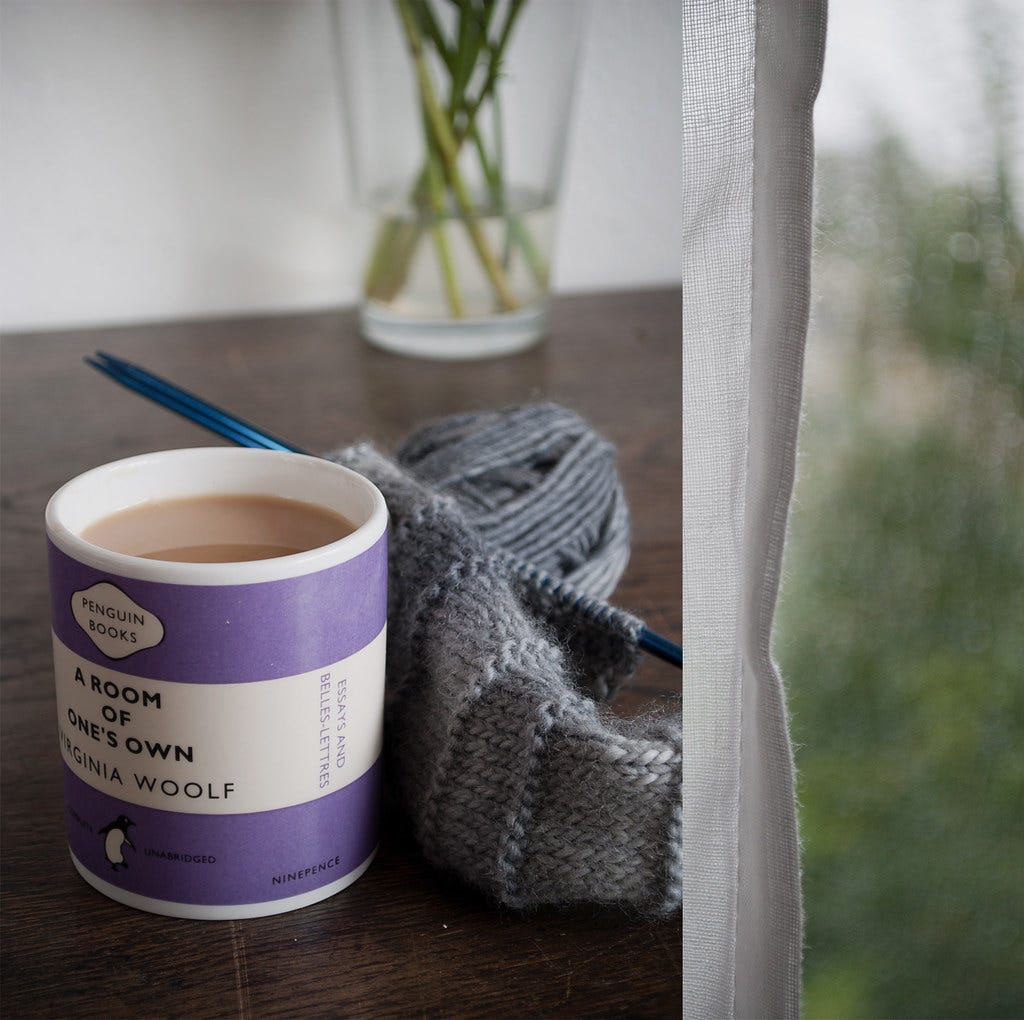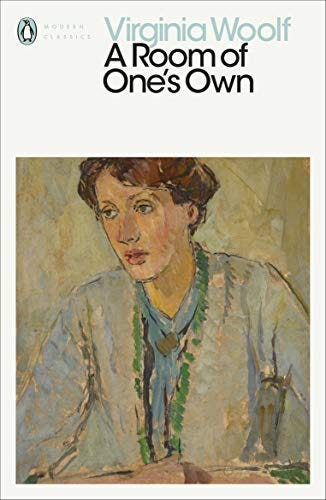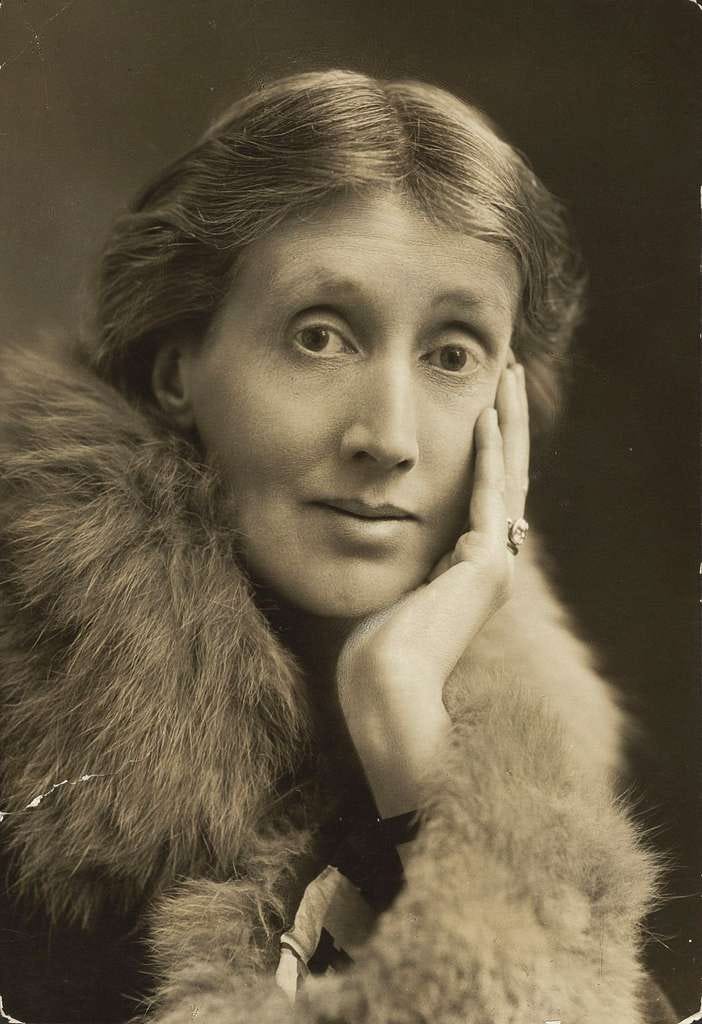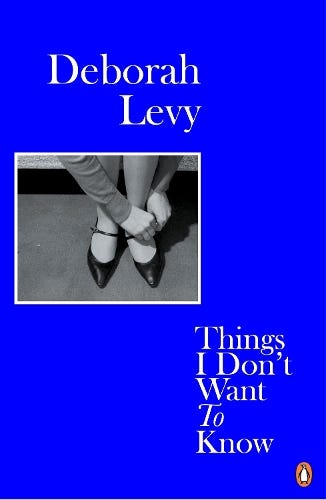Returning to 'A Room of One's Own'
How does Virginia Woolf's essay still respond to the female writer?

Welcome to A Narrative of their Own, an essay newsletter discussing the lives and literature of women.
If you enjoy reading essays on literature, as well as reviews of great books and recommended reading, please consider a free or paid subscription.
In September 1929, Virginia Woolf published her extended essay A Room of One’s Own, originally written as two lectures given at Newnham and Girton women’s colleges at Cambridge University on the topic of ‘Women and Fiction’.
The essay’s main premise is that a woman must have her own money and a room of her own if she is to write. Delivered through the voice of ‘Mary’, Woolf’s siren call was directed at women writers in an era which saw women’s creativity curtailed by their financial, social, and educational disadvantages.
“A woman must have money and a room of her own if she is to write fiction.”
― Virginia Woolf, A Room of One’s Own
To support her theory, Woolf suggests that women had been traditionally marginalised, seen as inferior writers and artists due to the nature of literature and history being a male construct.
To cleverly illustrate her point, Woolf entertainingly introduces a hypothetical sister to William Shakespeare, ‘Judith’, who is talented but uneducated. Due to her constant discouragement and lack of available outlets for her creativity, and the demands of repeated mundane domestic tasks, Woolf’s invented Judith sadly takes her own life. In this way, she mirrors many female protagonists in feminist- and protofeminist- texts. Think Edna Pontellier in Kate Chopin’s The Awakening or Lily Bart in Edith Wharton’s The House of Mirth. Often, it seems, the way to deal with an errant or subversive woman in such novels was to allow her the initial freedom, before curtailing it with the heroine’s suicide.
Though Woolf goes on to celebrate the women who have bucked this trend, including the Brontë sisters, Jane Austen and George Eliot, she continues to argue that financial freedom and domestic drudgery hampers women’s attempts to write. Further, due to an issue of gendered values, she suggests that men’s books were routinely seen as ‘important’ tracts on subjects such as war, whereas women’s writing, dealing with domestic situations, were seen as insignificant.
This reminds me of a theme I have written about before, the so-called ‘Hampstead Novel;’ stories written ‘around the pine kitchen table’ by women, primarily seen as for women. Writers such as Margaret Drabble and Penelope Mortimer were routinely ‘accused’ of this type of writing, where the domestic nature of the work (and the place in which it was written, often by a woman who was combining mothering and writing) was seen as a somewhat derogatory and reductionist term.
This is a topic also discussed in a recent interview I heard with writer and academic Dr Pragya Agarwal, discussing her book (M)otherhood On the Choices of Being a Woman, in which she investigates the cultural expectations around women’s choices. In the interview, she touched on this idea that men have often been seen as writer’s of the “important” topics. As an academic and researcher, she says she was initially hesitant to write a book about her own experiences and a topic so closely enmeshed with womanhood. Thankfully, she decided that it was imperative to hear these stories from more diverse perspectives than is usually available.
“I would venture to guess that Anon, who wrote so many poems without signing them, was often a woman.”
― Virginia Woolf, A Room of One’s Own
Of course, the astute amongst you will have noticed that Woolf’s text gave me the idea for the name of this newsletter, since I have spent much of the past decade researching the narratives of 20th Century women writers, both well published and virtually unknown. Through this research, I feel I have come to see the very argument in Woolf’s essay within many of the other literary women I have studied, particularly those who have attempted to combine writing with caring for others.
When I began reading and researching women’s narratives from WWI for my Masters dissertation, it became clear that stories written by women based both on the domestic front, and as war correspondents and nurses on the frontline, brought a new understanding of the depths of human responses to war. Throughout history, all types of writing by all types of people have allowed for a more nuanced viewpoint from which to understand life and culture.
Women’s narratives have shaped some of the ways we see our present experience in the world and the lasting effects their work has had, as well as explore the relevance of modernist ideas on our present situation as human citizens.
“Lock up your libraries if you like; but there is no gate, no lock, no bolt that you can set upon the freedom of my mind.”
― Virginia Woolf, A Room of One’s Own
Modernism in literature circles is often referred to primarily as the era following WWI, though some texts prior to this fall within the themes, style and tropes of modernist writing. It often reflects the disillusionment of this period, referencing ‘the lost generation’, as well as the proposed fragmentation of society, and unlike the wordy narratives of the 19th Century, its opaque allusions and imagery allowed for a more active role on behalf of the reader to interpret its meanings.
Woolf utilised these ideas well in her 1925 novel Mrs Dalloway, of course, through the narrative of Septimus Smith, a WWI veteran suffering what we would now term as Post Traumatic Stress Disorder. In her book, Woolf has the distraught Septimus plunge to his death, whilst the midlife society heiress Clarissa Dalloway hosts her party.
What I wondered however on a recent return to A Room of One’s Own was whether Woolf’s tract on the plight of the woman writer was still relevant.
I recently also began a re-read of Deborah Levy’s trilogy of ‘living autobiography’, beginning with Things I Don’t Want To Know, in which Levy relays key memories she would prefer to forget from her childhood in South Africa. These included the imprisonment of her father who was a member of the ANC during apartheid, to her early youth living in exile in England where she knew she wanted to be a writer but had no idea how to make that happen.
Writing in greasy spoon cafes amongst the builders and workmen on the back of grease stained napkins, she ponders where she's from and the stories of the past that she would prefer to forget, but that have a way of finding her nonetheless. For Levy, it wasn’t a room of her own which allowed her to write in the middle of the twentieth century, but a seat in a greasy spoon cafe.
‘What do we do with the knowledge that we cannot bear to live with? What do we do with the things we do not want to know?’
Deborah Levy, Things I Don’t Want to Know
Although the title page of Levy's book states that it is a response to George Orwell’s 1946 essay ‘Why I Write’, to me it felt more in conversation with Woolf’s text.
As Levy astutely states ‘A female writer cannot afford to feel her life too closely. If she does, she will write in a rage when she should write calmly,’ echoing Woolf’s own words, ‘she will write in a rage when she should write calmly. She will write foolishly where she should write wisely. She will write of herself where she should write of her characters. She is at war with her lot.’
In Levy’s early days as a writer, she struggles to find her voice. This isn’t just an issue with her writing voice however, which many writers new to the page can struggle to discover at first; Levy was also a young person who found it difficult to speak at all. A troubled early childhood in South Africa and a missing father in prison for several years, followed by the family’s arrival in London to live a life of exile, she speaks of her inability to speak as a child.
‘I had told the Chinese shopkeeper that to become a writer, I had to learn to interrupt, to speak up, to speak a little louder, and then louder, and then to just speak in my own voice which is not loud at all.’
Deborah Levy, Things I Don’t Want To Know
By Levy’s second living autobiography, The Cost of Living, she has become something of a successful writer, though not an abundantly well paid one. She is now living ‘in the republic of writing and children,’ having gone through a divorce and moving to an apartment building to live with her two teenage daughters. She states that her writing habits have now changed: she used to write in her study in the marital home, surrounded by her books. Now she is forced to sit on her tiny balcony in the freezing winter air, laptop crammed on her knees, looking out over the London nightscape. She also says her writing times have changed; now she writes deeply into the night, unable to sleep.
Within this second book, Levy examines the roles she has played; as a wife, mother, and daughter, as she tries to make a living as a writer in her new situation in conjunction with sitting beside her dying mother as she slips away. As often happens, the darkest of times converge for Levy, and her situation in life as a woman is thrown into sharp focus. She reflects back on her marriage, and the ways in which women often make the decisions which keep the household running.
‘Above all else, it is an act of immense generosity to be the architect of everyone else’s well-being,’ she tells us.
This feels close to Woolf’s imaginary Judith Shakespeare; that the demands of repeated mundane domestic tasks would have been one of many issues which would have kept her from writing; that her brother William would not have had that same kind of distraction to deal with.
Woolf’s essay was written at a time when university education and opportunities for women were still in their infancy (full suffrage wasn’t achieved in the UK until the year before her essay appeared, 1928). We must therefore recognise the leaps we have taken as women writing, working, loving and living in the twenty-first century.
But I think this issue of the domestic load persists. It is still seen in recent research that women do the lion’s share of the housework and childcare within the home, even where both partners work, whereas a BBC report showed that this is often not the case in LGBTQ+ couples, where the split is often reported to be much more equal.
In Woolf’s feminist critique within A Room of One’s Own, she ends her call to women writers to ‘write all kinds of books, hesitating at no subject however trivial or however vast’.
As Woolf surely recognised, and as is still true today, our lives and experiences as women are vast; we contain multitudes. To share our ideas and creativity through our books, newsletters, plays, poems, or any other creative medium, is to allow for a deeper understanding of ourselves and others.
“So long as you write what you wish to write, that is all that matters; and whether it matters for ages or only for hours, nobody can say.”
― Virginia Woolf, A Room of One’s Own
If you’re new around here, I usually write about all things women literature related. Please consider a free or paid subscription - your support helps keep this newsletter afloat!







Beautiful discussion on Woolf and Deborah Levy. Much to think about here. Thank you for all you do. 💮🌷
Thanks for another excellent essay, Kate!
I'm always struck by the power and wisdom of Woolf's prescription of money and a room of one's own. These two elements enable a person to create a BOUNDARY against the intrusion of other beings into one's sphere of autonomy and imagination. Without such a secure line of differentiation, it is difficult to thrive and develop.